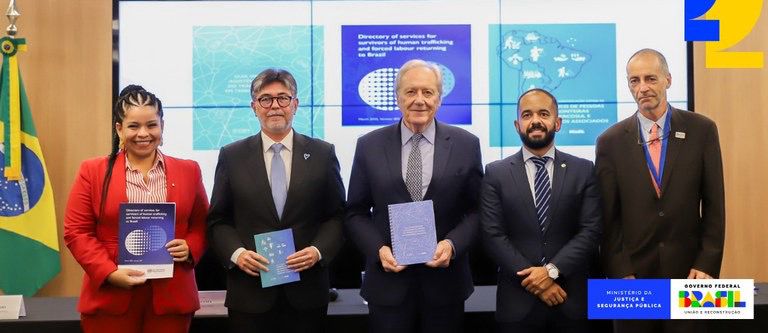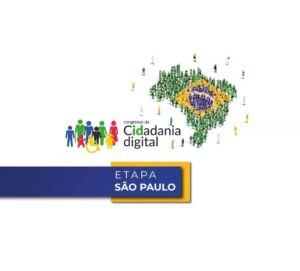
Brasília, 24/03/2025 – Human trafficking is a serious violation of human rights—an absolutely unacceptable assault. It is a scourge that concerns not only Brazil and Europe, but the entire world,” said Brazil’s Minister of Justice and Public Security, Ricardo Lewandowski, as he launched three publications aimed at strengthening assistance, identification, and referral mechanisms for victims of this crime. The launch ceremony took place this Monday (24), at the Ministry of Justice headquarters in Brasília (DF).
Lewandowski highlighted that, earlier this month, a pioneering agreement was signed between the Federal Police of Brazil and the European Union Agency for Law Enforcement Cooperation (Europol), aiming to reinforce global efforts in the fight against human trafficking. “We will remain committed to this continuous and tireless work to protect victims, punish offenders, and uphold fundamental rights,” he said.
The following publications were presented:
- Operational Guide for Assistance to Victims of Human Trafficking in National Territory
- Mapping of Services for Survivors of Human Trafficking and Forced Labor Returning to Brazil
- Rapid Identification Guide for Human Trafficking at Mercosur Borders and Associated States
Jean Keiji Uema, National Secretary of Justice (Senajus), emphasized the intersectoral nature of the initiative. “These publications are the result of collective work involving various stakeholders in the fight against human trafficking. They will serve as essential tools for training professionals and enhancing public policies in this area,” he stated.
“Human trafficking, especially involving children and infants, is a tragedy that must be combated using every available tool. Neonatal and child biometric identification is an essential step in this fight, as it ensures that from birth, each person has their identity registered in a unique and secure way. The identification system of the National Identity Card (CIN), by storing this data in a reliable manner and integrating it into a national database, will bring greater security to our society. We must join efforts and implement this immediately.”
— Célio Ribeiro, Executive President of ABRID and Founder and CEO of InterID
The Head of Mission of the UN Migration Agency (IOM) in Brazil, Paolo Caputo, also attended the event. “For IOM, strengthening effective mechanisms to combat human trafficking and migrant smuggling, as well as developing public policies that ensure access to rights and services for those most in need, is at the core of our mission,” he emphasized.
Also present were Sheila de Carvalho, Secretary for Access to Justice, and Leonardo Cardoso de Magalhães, Federal Public Defender General.
Publications
The publications are part of the 4th National Plan to Combat Human Trafficking, approved by Decree No. 12.121/2024. They were developed with support from the IOM, the European Union’s Eurofront Programme, and the Government of the United Kingdom.
Mapping of Services for Survivors of Human Trafficking and Forced Labor Returning to Brazil:
Supports victims who have already returned and assists those still in the United Kingdom. It includes data such as addresses, contacts, operating hours, costs (if applicable), and the types of services available at each institution.
Operational Guide for Assistance to Victims of Human Trafficking in National Territory:
Provides practical procedures for identifying and assisting victims, with specific guidance for vulnerable groups such as children and adolescents, women, the LGBTQIA+ population, Indigenous peoples, and migrants.
Rapid Identification Guide for Human Trafficking at Mercosur Borders and Associated States:
Offers clear guidelines for the early detection of trafficking cases. The didactic approach helps inform border agents and professionals involved in victim support and prevention networks.




